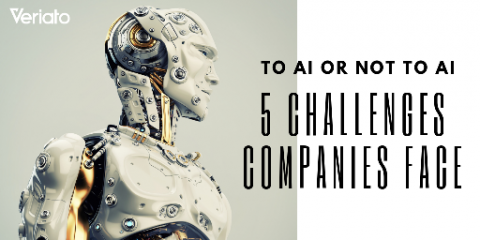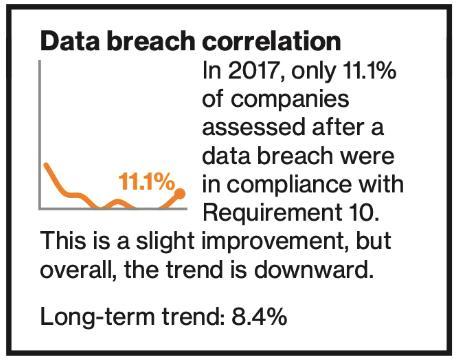Security | Threat Detection | Cyberattacks | DevSecOps | Compliance
%term
To AI or Not to AI - Five Challenges Companies Face When Attempting to Embrace AI
Artificial intelligence is one of the biggest buzzwords of the year. It seems to be a much-needed answer to many woes across various industries and inherent challenges. While many are embracing the concept, others remain skeptical about the true benefit that artificial intelligence can have in businesses. No matter what side of the fence a company is on, there are some considerations to keep in mind and common mistakes to be mindful of as you embark on your AI journey.
Category 1 cyber threat for UK businesses
Britain should be prepared for a Category 1 cyber security emergency, according to the National Cyber Security Centre (NCSC). This means that national security, the economy, and even the nation’s lives will be at risk. However, despite this harsh warning, UK businesses still aren’t taking proactive and potentially preventative action to stop these attacks from happening. So just where are UK businesses going wrong and can they turn things around before it’s too late?
What is PCI DSS compliance?
10 of the Most Significant Ransomware Attacks of All Time
For years, ransomware actors have developed new families and attack campaigns in increasing frequency and numbers. Such activity peaked in 2017 but then fell in tandem with cryptocurrency miners’ rise. This development was short-lived, however. Between Q4 2018 and Q1 2019, Malwarebytes observed a 195 percent increase in ransomware detections involving business targets. The rate was even greater compared to Q1 2018 at 500 percent.
Integrating Security to DevOps: Fundamental Principles Are Crucial!
Changing consumer demands posed a serious challenge to the IT industry; it pushed firms to brainstorm about quick product delivery. This demand eventually gave rise to the demand for collaboration between Development (Dev) and Operations (Ops) teams, welcoming the DevOps trend. As a result, everything started progressing well with increased development, enhanced collaboration, advanced testing, high productivity and minimized time to market.
File Integrity Monitoring Best Practices
Nowadays, most of the IT systems use file-based architectures to store and process information. In addition, the critical applications such as operating systems, application binaries, configuration data of systems and applications, organization’s sensitive data, logs, and data which is pertinent to security events are stored in files. If any of these files is compromised, the financial and reputational damage occur to organizations.
Don't Trade Convenience for Security: Protect the Providence of your Work
I recently volunteered as an AV tech at a science communication conference in Portland, OR. There, I handled the computers of a large number of presenters, all scientists and communicators who were passionate about their topic and occasionally laissez-faire about their system security. As exacting as they were with the science, I found many didn’t actually see a point to the security policies their institutions had, or they had actively circumvented them. A short survey heard reasoning like.
Gamers risk getting played by hackers
If you’re in your mid-twenties or beyond, you will be familiar with people at family gatherings saying ‘remember when we didn’t have all these gadgets, and we used to actually talk to each other?’ The answer to this is ‘no’ – the level of conversation has remained largely unchanged, it’s just now we have gadgets and gizmos to occupy our attention during these moments of strained silence. I put it down to the Mandela effect.
Weekly Cyber Security News 06/09/2019
A selection of this week’s more interesting vulnerability disclosures and cyber security news. A great example of (half) forgotten linked app this week via, quite unforgettably, from the Twitter CEO. I’m sure we all have linked services together as authentication of to bridge a data conduit just to do a trial or something and neglected to remove it afterwards. Well…. That lapse could come back to bite in the future.









